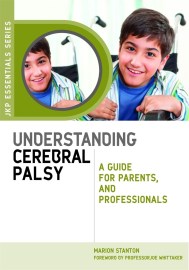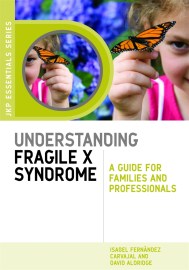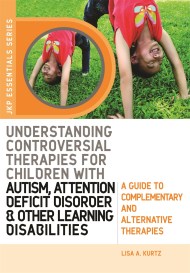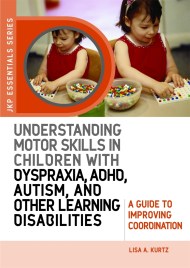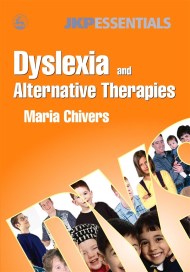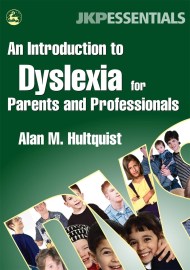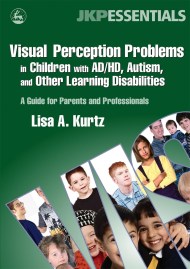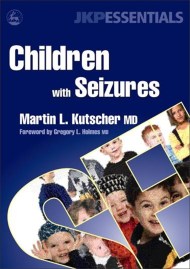Visual Perception Problems in Children with AD/HD, Autism, and Other Learning Disabilities
This book provides a comprehensive overview of vision problems in children with developmental disabilities such as AD/HD, autism spectrum disorders, and specific learning disabilities.
Written in a very accessible style, it is appropriate for parents and professionals alike and offers non-technical explanations of how vision difficulties are screened for and advice on where to seek appropriate professional care. Lisa Kurtz outlines a range of activities for strengthening children’s functional vision and perceptual skills using simple, homemade materials that are readily available in the home or classroom.
This is an excellent practical companion for parents of children with visual perception problems and the professionals who work with them.
Written in a very accessible style, it is appropriate for parents and professionals alike and offers non-technical explanations of how vision difficulties are screened for and advice on where to seek appropriate professional care. Lisa Kurtz outlines a range of activities for strengthening children’s functional vision and perceptual skills using simple, homemade materials that are readily available in the home or classroom.
This is an excellent practical companion for parents of children with visual perception problems and the professionals who work with them.
Newsletter Signup
By clicking ‘Sign Up,’ I acknowledge that I have read and agree to Hachette Book Group’s Privacy Policy and Terms of Use
Reviews
`This short book is a reliable introduction to a complex area of need which is all too often masked by a child's other, more obvious difficulties. The practical suggestions provide useful starting points for both specific visual difficulties and general visual development…This book is a good reminder that it is crucial for parents and practitioners to promote alternative activities that provide opportunities for children to practice and develop their visual skills.'
`an excellent resource for any parent, teacher or professional whose child is presenting with subtle vision difficulties as it contains quite a few gems (eg explanations, screening tests, addresses and activities) which adds to the knowledge of the reader.'
`Lisa Kurtz writes in an open and informative way which holds your attention giving an easy to understand description of the problem experienced by many of the children that we see in `Special Times'
`This book is exceptionally practical. Kurtz keeps parents in mind throughout by providing the medical lingo to necessary inform, but not to confuse. She provides a list of organizations that offer vision therapy (both inside and outside the U.S.), suggested questions to ask an eye professional before making an appointment, an explanation of the terminology a parent might find in a medical report, and a list of organizations, along with their web addresses and a one- to two-sentence description of the content at that web site.'




